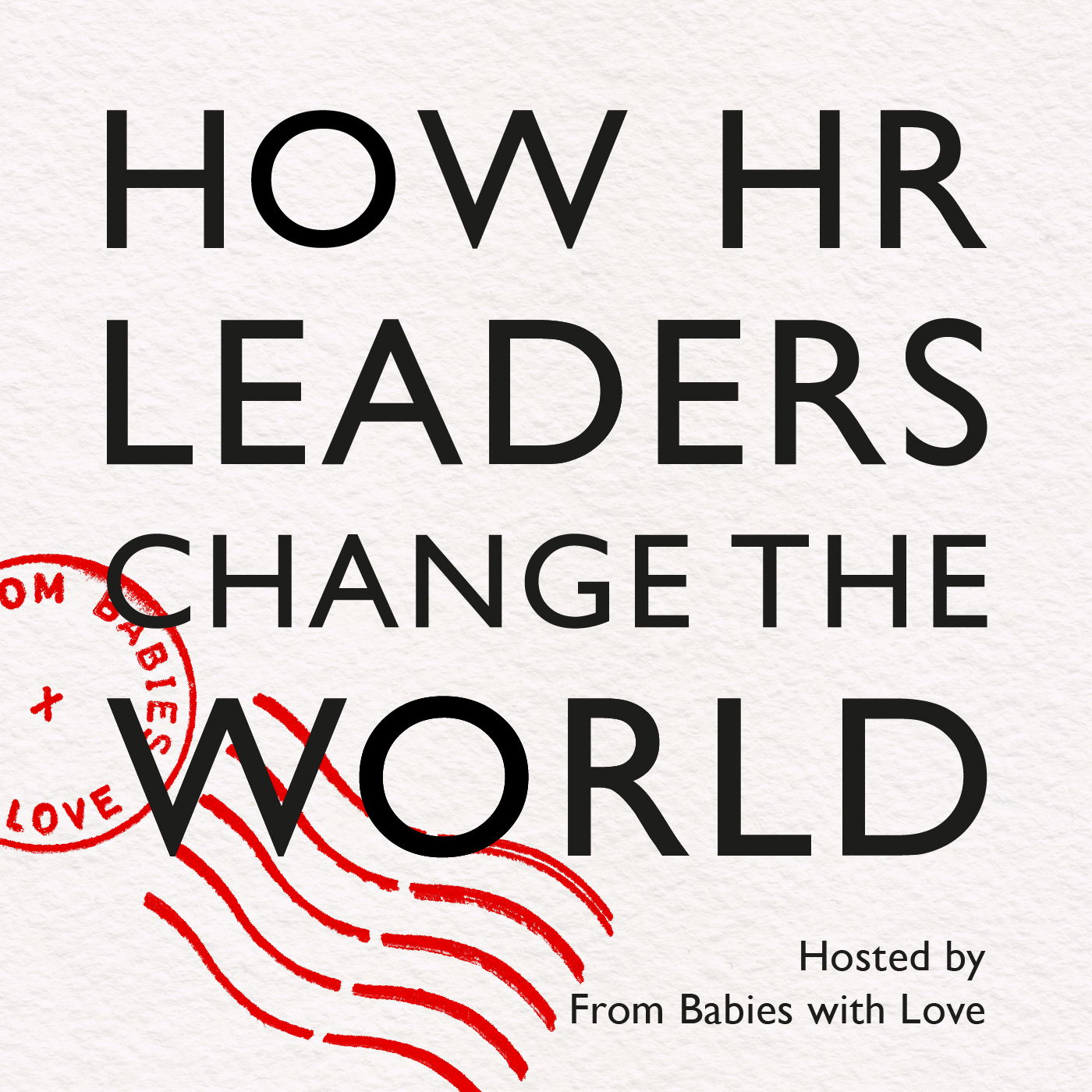In each episode of the How HR Leaders Change the World podcast, a global HR Leader discusses how their strategic, commercial HR work, is also contributing to the UN Sustainable Development Goals; how the wellbeing of people, society and planet are connected, and they share HR strategies and actions that you can implement at your company too.
Now celebrating its 50th episode, in this article host Cecilia Crossley has summarised for us, five key trends the featured CHROs are talking about.
Trend 1. HR is key to the drive for sustainability
Sustainability isn’t just the net zero target your company may have set, it’s also the wellbeing of your people and the communities your company serves and operates in. This means sustainability must involve everyone in an organisation, and certainly HR.
From Talent Acquisition to Learning & Development, sustainability goals have significant impacts for Talent Strategy. How will your company build a Net Zero workforce? Do you have a Chief Climate Officer or a Climate Team? How will you upskill your workforce and where will you recruit from? How will you design sustainable workplaces and work-practices to foster wellbeing and drive performance?
With regular headlines urging for a faster response to the climate crisis, leading CHROs are considering these questions as key pillars for their company’s plans. Many companies are using the ESG (Environment, Social, Governance) reporting framework to shape their work. HR contributes to all three of these areas, and Anne-Christine Ahrenkiel, CHRO at DFDS, noted that ESG strategy is the most important employee engagement tool for her company.
Often chaired by the CFO or a Corporate Responsibility professional, in the past HR has not always considered key to ESG strategy and deliverables – but this is changing – and impacting every single one of the 17 SDGs.
Call to action 1: If you or an HR colleague aren’t already on your company’s ESG committee, go get involved, they can’t achieve as much without you.
Trend 2. Social Mobility: accessing talent and reducing inequality
From inclusion-led policy and practice in your talent acquisition processes, to pre-employment programmes, internships and apprenticeships, broadening supportive access to work opportunities enables you to tap into talent groups that face barriers to employment.
Not only does this enable you to recruit great people, you also reduce inequality, contributing to UN SDG10 (and many of the other SDGs too).
Neil Piper, CHRO at KFC UK & Ireland describes the successes and impacts of KFC’s approach, including a story of a colleague that joined as teenager working part-time, who found a friendship group and self-belief in what they are good at, and in 5 years developed their career to now run an entire restaurant with a team of 40 people, whilst also studying for a degree.
Providing some powerful statistics about the missed opportunities of narrow recruitment strategies, Kevin Hogarth, Chief People Officer at KPMG UK shares their approach to collecting data and measuring the diversity of KPMG’s workforce based on social mobility criteria. KPMG UK asks all colleagues the question – what job did your parents have when you were 14? Alongside gender and race pay gap reporting, this enables them to now set stretching targets and measure progress on how they contribute to, and gain from, social mobility.
Call to action 2: is your company reaping the benefits of accessing, attracting, and supporting talent from diverse economic backgrounds? Could you take another step, such collecting data on the economic background diversity of your current workforce?
Trend 3. Time as a tool for improving diversity, equity and inclusion
Many of our guests have considered the impacts of the Covid-19 pandemic for the future of work. Across many different facets, the increase in flexibility of work – both where and when – has significant impacts for improving diversity, equity and inclusion.
From less travel and people doing their work at home, to less 9 – 5, meaning people with caring responsibilities during the day can do their work at night, many CHROs have noted how the dramatic change in our perception of time means we have greater opportunity to include everyone.
In connection, our guests have also discussed the mental health impacts of the pandemic, and the opportunity now to re-design our understanding of time and flexible work to improve our individual and collective wellbeing. Tim Munden, former Chief Learning Officer at Unilever, discusses how HR can help us have work that is meaningful, in workplaces that are nurturing, supportive, that contribute purposefully to the world. How HR can create organisational cultures that are fundamentally healthy and have phycological safety.
SDG3 is Good Health & Wellbeing – throughout the pandemic there is no question that HR is leading businesses in achieving this goal. HR’s leadership in designing the future of work impacts many other SDGs too, for example SDG5 is Gender Equality, indeed SDG8 itself is Decent Work & Economic Growth.
Call to action 3: Does your company assess colleagues’ performance based on outputs and outcomes, not where they work or when? If not, can you pilot a change in approach?
Trend 4. How to harness your social capital – where do you have power?
Inclusive leadership, enterprise-wide DE&I and speaking truth to power are all huge topics that CHROs and CDIOs have discussed. Salima Bhimani, Chief Strategist DE&I at Alphabet advocates taking a step back to reflect on where you have power – where you face barriers yourself, where you can use your power to help yourself and others.
Allowing time to think this through at a personal and then organisational level, supports system change across an organisation – deep thinking and root culture change that provides a foundation for every strategy and area of work and cutting across all of the SDGs.
Call to action 4: our guests suggest some brilliant and simple exercises you can do to help take a step back. A couple of my favourites: i) From Asif Sadiq, SVP Equity & Inclusion at Warner Media International: write down your 5 closest friends – notice how different (or not) they are to you… what experience, outside of work, could have with them to experience a new culture – for example a different cuisine at a restaurant you’ve not been to? And ii) From Salima Bhimani, taking a progressive view and investing in the DE&I capability of your HR function, which in turn is crucial to embedding DE&I across your entire organisation.
Trend 5. HR goes first
Many of the HR Leaders comment on the dramatic shift in the role of HR, fast-forwarded due to the pandemic.
Reflecting over the last few decades, or even centuries; did we somehow forget that all businesses are made up of people, and exist to serve people? No longer a compliance function, or even a function partnering with ‘the business’; instead, HR is now driving it.
Described as HR 3.0 by Martijn Seisneijer, Global Head of Employee Experience at Credit Suisse, all our guests comment what an exciting time it is to be in HR, how HR is delivering at the intersection of performance, purpose and culture, and is taking its place on the podium.
Call to action 5: a simple and powerful step you can take, from Jayde Tipper, Chief People Officer at Temenos: for an upcoming meeting, ask to go first on the agenda. As our guests in the first 50 episodes of How HR Leaders Change the World have shown, your work, is changing the world.
A note from the host – introducing How HR Leaders Change the World
I’m the founder of From Babies with Love, we’re a social enterprise and donate 100% of our profits to orphaned and abandoned children around the world. We provide services to HR functions, such as our flagship parental leave gift service.
In doing this work I began seeing how HR practitioners and social entrepreneurs have so much in common. Our day-to-day work is different, but at the core of both our professions, is caring for people. With more and more friends in HR, I began to question – does anyone else see these connections? Is anyone talking about it?
Which is why we created How HR Leaders Change the World – to share views and actionable examples of success from progressive HR leaders. To connect HR work with achieving the UN SDGs and show how you, as an HR professional, are also a change-maker.
Get inspired: hear HR Leaders share how your HR is also driving positive social change

Featuring HR leaders from Alphabet to Zurich, enjoy all the episodes here or by searching How HR Leaders Change the World where you listen to your podcasts.


